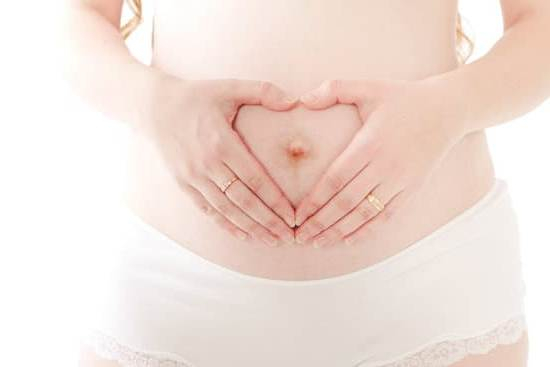When do pregnancy cravings start? Pregnancy cravings are a well-known phenomenon, often portrayed in movies and TV shows as women craving pickles and ice cream at odd hours of the night. However, there is more to these cravings than just the stereotype. Understanding when pregnancy cravings start and how to manage them can be important for expectant mothers as they navigate their journey through pregnancy.
Pregnancy cravings are a common experience for many women, typically beginning in the first trimester and continuing throughout the pregnancy. While the exact cause of these cravings is still not fully understood, there are various factors that contribute to this phenomenon. From hormonal changes to nutritional needs, there are several reasons why pregnant women may experience strong urges for specific foods.
In this article, we will delve into the science behind pregnancy cravings, explore the early signs of these cravings, discuss common triggers for pregnancy cravings, and examine how hormonal changes can affect them. Additionally, we will provide tips for managing and satisfying pregnancy cravings while maintaining a balanced diet. Understanding these aspects of pregnancy cravings can help expectant mothers navigate this unique aspect of their journey towards motherhood.
Understanding the Science Behind Pregnancy Cravings
Pregnancy cravings are a fascinating aspect of pregnancy that many women experience. Understanding the science behind these cravings can shed some light on why they occur and how to manage them.
When do pregnancy cravings start? While every woman’s experience is unique, pregnancy cravings typically start in the first trimester, around the 6th week of pregnancy. However, some women may not experience cravings until later in their pregnancy, and for others, they may begin even before they realize they are pregnant.
The science behind pregnancy cravings is complex and multifaceted. Hormonal changes play a significant role in triggering cravings, particularly the hormones progesterone and estrogen, which can impact taste and smell sensitivity. Additionally, nutritional deficiencies or imbalances can also contribute to specific food cravings as the body signals a need for certain nutrients.
To better understand the science behind pregnancy cravings, consider the following factors:
- Hormonal changes: Fluctuations in hormone levels can intensify or suppress taste buds and sense of smell, leading to heightened sensitivity to certain flavors or smells.
- Nutritional needs: The body’s increased demand for nutrients during pregnancy can result in specific food cravings to fulfill these needs.
- Emotional and psychological factors: Stress, anxiety, or even cultural influences can also impact food preferences during pregnancy.
Understanding these scientific aspects of pregnancy cravings can help expectant mothers manage and satisfy their cravings while ensuring a balanced diet for themselves and their growing baby. By being mindful of the triggers and causes of these cravings, women can make more informed choices about their food intake during this crucial time.
Early Signs of Pregnancy Cravings
Pregnancy cravings are one of the most well-known symptoms of pregnancy, often depicted in movies and television shows. These intense desires for specific foods can start as early as the first trimester and continue throughout the pregnancy. Some women may experience cravings very early on, even before they realize they are pregnant, while others may not experience them at all. Understanding when do pregnancy cravings start can help expectant mothers prepare for potential changes in their eating habits.
The exact cause of pregnancy cravings is still not fully understood, but hormonal changes are believed to play a significant role. The surge in hormones, such as estrogen and progesterone, during pregnancy can affect taste and smell sensitivity, leading to unusual food preferences. Additionally, nutrient deficiencies or fluctuations in blood sugar levels may also contribute to these cravings.
Women may start experiencing pregnancy cravings as early as the first month of pregnancy. However, it is essential to note that every individual’s experience is unique, and some women may not experience strong cravings until later in their pregnancy. It is crucial for pregnant women to listen to their bodies and pay attention to any sudden shifts in their food preferences or eating habits.
| Month of Pregnancy | Likelihood of Experiencing Cravings |
|---|---|
| First Trimester (Month 1-3) | Some women may start experiencing mild cravings |
| Second Trimester (Month 4-6) | Cravings may become more frequent and intense |
| Third Trimester (Month 7-9) | Cravings might continue or diminish depending on the individual |
Common Pregnancy Cravings and Their Triggers
Pregnancy cravings are a common phenomenon experienced by many expectant mothers. These cravings can range from mild to intense and can be triggered by various factors such as hormonal changes, nutritional deficiencies, and emotional stress. Understanding the common pregnancy cravings and their triggers can help expectant mothers manage and satisfy their cravings in a healthy way.
Some of the most common pregnancy cravings include:
- Craving for sweets such as chocolate, ice cream, or candy
- Desire for salty snacks like chips, pretzels, or pickles
- Longing for spicy foods such as hot peppers or Mexican dishes
- Craving for sour foods like citrus fruits or vinegar-based foods
These cravings can be triggered by a variety of factors including hormonal changes, nutritional deficiencies, and emotional stress. For example:
- Hormonal Changes: Fluctuations in hormone levels during pregnancy can trigger cravings for certain types of food. The hormone progesterone, which increases during pregnancy, is known to stimulate appetite and may influence food preferences.
- Nutritional Deficiencies: Cravings for specific foods may indicate that the body is lacking certain nutrients. For example, craving red meat could be a sign of iron deficiency.
- Emotional Stress: Pregnant women may experience heightened emotions and stress, leading to cravings for comfort foods that provide a sense of satisfaction and relief.
Understanding these triggers can help expectant mothers navigate their pregnancy cravings in a healthy way and ensure that they are meeting their nutritional needs during this important time.
How Hormonal Changes Affect Pregnancy Cravings
During pregnancy, hormonal changes have a significant impact on a woman’s body, including her appetite and food preferences. These hormonal fluctuations can lead to the onset of pregnancy cravings, which are often intense and specific desires for certain foods. Understanding how hormonal changes affect pregnancy cravings can help expectant mothers manage these cravings and navigate their nutritional needs during this crucial time.
Impact of Hormones on Taste and Smell
When a woman becomes pregnant, her body experiences an increase in hormones such as estrogen and progesterone. These hormonal changes can alter her sense of taste and smell, making certain foods more appealing or off-putting. The heightened sense of smell during pregnancy can also contribute to aversions to certain foods that may have once been enjoyed, while intensifying the desire for others.
Role of Hormones in Appetite Regulation
Hormonal changes during pregnancy can also affect the regulation of appetite. The hormone ghrelin, which stimulates appetite, is often elevated in pregnant women, leading to increased feelings of hunger and potentially triggering cravings for specific types of food. Additionally, fluctuations in insulin levels may contribute to sudden drops in blood sugar, prompting strong urges for quick sources of energy – often in the form of sweet or carbohydrate-rich foods.
Emotional Influence of Hormonal Changes
In addition to physiological effects, hormonal changes during pregnancy can also have emotional implications that impact food preferences and cravings. Mood swings and stress associated with hormonal fluctuations may drive women towards seeking comfort in familiar or indulgent foods as a coping mechanism. Understanding these emotional influences is key to managing pregnancy cravings in a holistic manner that considers both physical and psychological well-being.
Managing and Satisfying Pregnancy Cravings
Pregnancy cravings can start as early as the first trimester for some women, while others may not experience them until later in their pregnancy. These cravings are an expected and normal part of being pregnant and are caused by hormonal changes, nutritional needs, and psychological factors. It’s essential for expectant mothers to understand how to manage and satisfy these cravings in a healthy way to ensure the well-being of both themselves and their baby.
One way to manage pregnancy cravings is by identifying healthier alternatives that can still satisfy the craving without compromising on nutrition. For example, if a woman is craving something sweet, she could opt for fruits or yogurt instead of sugary snacks. Incorporating a wide variety of nutritious foods into the diet can also help reduce the intensity and frequency of cravings.
It’s also important for pregnant women to listen to their bodies and practice mindful eating. By paying attention to hunger and fullness cues, they can prevent overeating while still satisfying their cravings in moderation. Additionally, staying well-hydrated can help minimize cravings, as thirst is sometimes mistaken for hunger during pregnancy.
Overall, managing and satisfying pregnancy cravings involves making informed food choices, practicing moderation, and staying attuned to bodily signals. By doing so, pregnant women can embrace their cravings in a way that supports their health and the health of their growing baby.
| Managing Pregnancy Cravings | Satisfying Pregnancy Cravings |
|---|---|
| Identify healthier alternatives | Listen to bodily cues |
| Incorporate nutritious foods into the diet | Practice mindfulness when eating |
| Stay well-hydrated | Avoid overeating by paying attention to hunger cues |
Impact of Pregnancy Cravings on Nutritional Health
During pregnancy, it is common for women to experience intense and sometimes unusual food cravings. These cravings can have a significant impact on the nutritional health of both the mother and the developing baby. It is important for expectant mothers to understand how their cravings can affect their overall nutrition and what steps they can take to ensure they are meeting their dietary needs.
Pregnancy cravings can lead women to consume high amounts of unhealthy or processed foods, which may be low in essential nutrients such as vitamins, minerals, and fiber. This overconsumption of certain foods can result in imbalances in the diet and potentially lead to deficiencies in important nutrients necessary for the baby’s development.
Additionally, if a woman’s cravings are for non-food items such as dirt or clay (a condition known as pica), this could also significantly impact her nutritional health.
Furthermore, frequent indulgence in sugary and fatty foods due to pregnancy cravings can contribute to excessive weight gain during pregnancy, which may increase the risk of gestational diabetes and other health complications. On the other hand, some women may experience aversions to certain nutritious foods that are essential for a healthy pregnancy diet due to their cravings for other items.
It is crucial for expectant mothers to maintain a balanced and diverse diet despite their cravings in order to support both their own health and that of their baby.
Seeking Professional Help for Unusual Pregnancy Cravings
During pregnancy, it is common for women to experience cravings for certain foods. However, there are instances when these cravings become unusual and may point to underlying issues that need professional attention. It is important for expectant mothers to recognize when their pregnancy cravings are becoming excessive or abnormal and seek help from healthcare professionals.
Unusual pregnancy cravings may manifest as an intense and persistent desire for non-nutritive substances such as dirt, clay, or ice – a condition known as pica. This behavior can be harmful to both the mother and the baby, as consuming non-food items can lead to nutritional deficiencies and other health complications. When a pregnant woman experiences such cravings, it is crucial for her to consult with her obstetrician or healthcare provider immediately.
Additionally, some expectant mothers may develop extreme aversions towards certain foods during pregnancy, making it difficult for them to maintain a healthy diet. This could result in inadequate nutrition for both the mother and the developing fetus. Seeking the help of a registered dietitian or nutritionist can provide guidance on alternative food options and ensure that essential nutrients are still being consumed despite food aversions.
Conclusion and Tips for Dealing With Pregnancy Cravings
Pregnancy cravings can start as early as the first trimester, and they are a natural and common part of pregnancy. Understanding the science behind these cravings, such as hormonal changes and nutritional needs, can help expectant mothers manage and satisfy their cravings in a healthy way. It is important for pregnant women to listen to their bodies and indulge in moderation while still prioritizing their overall nutritional health.
While some common pregnancy cravings may include chocolate, pickles, or ice cream, it is also crucial to recognize when unusual or intense cravings may be a sign of an underlying issue that requires professional help. Seeking support from healthcare professionals can provide expectant mothers with the guidance and resources they need to navigate their unique pregnancy experiences.
In conclusion, when dealing with pregnancy cravings, it is essential for expectant mothers to be mindful of their nutritional needs while also allowing themselves some indulgence. By understanding the triggers and science behind pregnancy cravings, seeking professional help when needed, and finding healthy ways to satisfy cravings, women can better manage this aspect of their pregnancy journey. Overall, embracing the experience of pregnancy cravings with balance and awareness can contribute to a more positive and healthy pregnancy experience.
Frequently Asked Questions
How Early in Pregnancy Do You Get Craving?
Cravings during pregnancy can start as early as the first trimester. While some women may not experience any cravings at all, others report them starting around 6-8 weeks into their pregnancy. These cravings can vary widely from person to person.
What Happens if You Ignore Pregnancy Cravings?
Ignoring pregnancy cravings may not necessarily have any negative effects on the mother or the baby. However, it’s important for pregnant women to listen to their bodies and make healthy food choices whenever possible. If a craving is for unhealthy foods, moderation is key.
What Is the Most Popular Pregnancy Craving?
The most popular pregnancy craving is often said to be pickles and ice cream, although this may be more of a stereotype or cultural trope than an actual widespread phenomenon. In reality, pregnancy cravings can range from salty snacks like potato chips to sweet treats like chocolate or fruit.
Every woman’s experience is different, so there’s no one-size-fits-all answer to this question.

Welcome to my fertility blog. This is a space where I will be sharing my experiences as I navigate through the world of fertility treatments, as well as provide information and resources about fertility and pregnancy.





